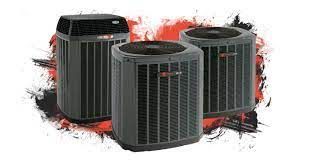Heat Pump Versus Air Conditioning: A Comparative Analysis
Understanding Heat Pumps
Heat pumps are sophisticated HVAC systems designed to regulate indoor temperatures by managing the flow of air in and out of your residence. These systems are versatile in that they can expel warm air to cool your home during hot weather, and, when required, reverse this process to provide heating in colder conditions. They excel even in frigid climates, thanks to an auxiliary heating mechanism that activates when outdoor temperatures fall below 30 degrees Fahrenheit. There are three primary types of heat pumps available to homeowners: air-source heat pumps, which are the most common; geothermal heat pumps, which draw thermal energy from the earth beneath your foundation; and water-source heat pumps, which rely on a nearby water source, like a pond, for their heat supply.
Introduction To Air Conditioning
Air conditioning systems are specifically designed to deliver cool air to your home during warm seasons. They accomplish this by taking in warm external air and cooling it using compressed refrigerant gas. This process involves the evaporation of heat and the circulation of cooled air through ducts and vents, effectively lowering indoor temperatures. Additionally, air conditioning units include air purification functions, effectively removing allergens and enhancing indoor air quality. Various types of air conditioning systems cater to different homeowner needs, such as window units for small spaces, central air conditioners for whole-house cooling, split AC units with indoor and outdoor components and no ductwork requirements, portable AC units for temporary cooling solutions, and alternative options like geothermal or swamp AC units. It is essential to note that air conditioning systems exclusively provide cooling and require a separate heating unit for warming your home.

Comparing Heat Pumps and Air Conditioning
Heat pumps and air conditioning systems stand as two popular choices for home cooling. Although both utilize refrigerants and run on electricity, they distinguish themselves through their functionalities. Heat pumps provide both heating and cooling capabilities, while air conditioning systems focus solely on cooling. Notably, heat pumps are lauded for their energy-saving attributes, potentially resulting in long-term reductions in utility expenses. Conversely, air conditioning units usually entail a lower initial cost. To determine the most suitable option, factors such as energy efficiency, regional climate, and financial resources should be taken into account. If your home is equipped with a High-Efficiency Gas furnace, then opting for an Air Conditioner makes sense, as it maximizes heating efficiency. Below is a comparative overview of key elements to aid you in making an informed decision:
Energy Efficiency: Heat pumps and air conditioning units have energy efficiency ratings. The Seasonal Energy Efficiency Ratio (SEER) measures cooling system efficiency, with higher SEER ratings indicating better long-term savings. Additionally, the Heating Seasonal Performance Factor (HSPF) measures a heat pump’s efficiency in heating mode. Heat pumps typically offer better energy efficiency in cooling and heating compared to traditional air conditioners.
Overall Efficiency: Heat pumps excel in removing humidity and heat from the air, making them more efficient than air conditioners. According to the U.S. Department of Energy, air-source heat pumps can reduce electricity consumption for heating by up to 50% compared to stand-alone heating systems.
Lifespan: Air conditioning units typically last 15 to 20 years, whereas heat pumps, which run year-round, may have a shorter lifespan.
Location: The efficiency of heat pumps can be influenced by the climate in which you live. They perform better in moderate climates and may have a longer lifespan when not used year-round. Air conditioners are better suited to warm climates but may work harder and have a shorter lifespan in extremely hot weather.
Overall Cost: Heat pumps have higher upfront costs, ranging from $4,200 to $7,600 or more, depending on the type and additional installation needs. Air conditioning systems are generally more affordable initially but only offer cooling, requiring an additional heating system investment.
Professional vs. DIY Installation: Professional installation is recommended for both heat pumps and air conditioning systems to ensure proper setup and maintenance of warranty coverage. These installations involve heavy equipment and complex systems that typically require licensed technicians.
Our Recommendation: The choice between heat pumps and air conditioning depends on factors such as your budget, heating and cooling needs, local climate, and potential energy savings. Heat pumps offer energy-efficient year-round solutions but have higher upfront costs. Air conditioning provides efficient cooling but requires a separate heating system for winter warmth. Consider your specific requirements and consult with HVAC professionals to make the right decision for your home.